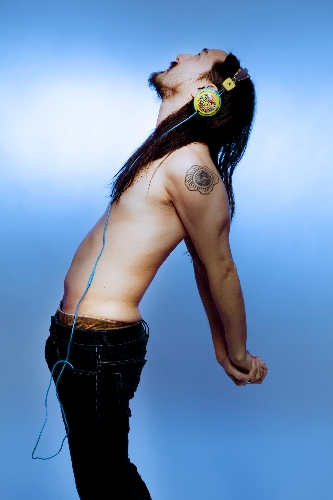Dance music thrives as Identity tour comes to Las Vegas
Mainstream American audiences have long treated dance music like a drunken dalliance with some bar-light beauty: It's fine for a night, but there has never been any kind of long-term commitment.
In the mid-'90s, electronica was supposed to be the next big thing after the masses began to get burned out on grunge and dressing like lumberjacks, and so we flirted with The Prodigy, batted our eyelashes at The Chemical Brothers and tolerated the occasional advance from Fatboy Slim.
But the relationship was never fully consummated, as we soon got all hot 'n' heavy with teen pop and rap rock -- must have been the Jager -- and in the years since, all we've heard is how hopelessly behind the curve we are compared with our European counterparts, who elect DJs to public office and stop dancing only long enough to protest the 40-hour workweek, or so it seems.
But, there are signs that this is all beginning to change, with producer/DJs such as David Guetta, Steve Aoki and Afrojack invading the airwaves by working with some of the biggest names in pop (Rihanna, Black Eyed Peas, Beyonce, etc.) and the growing size and popularity of dance music gatherings such as Miami's Ultra Music Festival, New York City's Electric Zoo and the new-to-town Electric Daisy Carnival, which drew close to 200,000 fans to Vegas in June.
Another big development for the dance music community Stateside is the launch of Identity, the first all-dance music tour that launched this summer with more than two dozen acts performing on a trio of stages in arenas and amphitheaters around the country.
"It's monumental. It's a really big change for America," says Aoki, one of the Identity headliners. "We're finally catching up with the rest of the world as far as dance music is concerned."
The bill is loaded with a diffuse lineup of electronic music artists: There's the anthemic, arms-in-the-air house of Kaskade, the seismic dubstep of Rusko, the throbbing electropop of Holy Ghost, the old-school boosterism of Pete Tong and the Crystal Method and lots more.
All of these artists have established followings of their own through performing mostly in nightclubs and theaters, but touring together in bigger music venues, they're confronting a broader audience.
"You're definitely reaching out to people who've never heard your music before," Aoki says.
But why is this all happening now?
For Aoki, who founded his own label, Dim Mak Records, in '96 and whose roster currently ranges from garage rockers The Willowz to electro house duo Dada Life, a lot of it has to do with the way music is consumed these days.
"Before people had the Internet, they would just watch MTV and listen to the radio, and that's how they would get music," he says. "Nowadays, for kids to discover dance music online, it's very common. Before I even had big tunes, I still had a following. Kids would know my remixes, and these were records that you could only get online through blogs and things like that.
"It's amazing how fast I can spread it," he continues. "Everyone finds their music on YouTube, Facebook, Spotify, Soundcloud. Thank God for that, because before, the only people that would be touring would be the big guys who are always on TV or the radio."
And so even though dance music has begun to crossover into the mainstream, its growing popularity continues to be developed mostly on a grassroots level. This is the rare form of music that can draw crowds in the tens of thousands that has been incubated largely outside of the major-label record system.
Aoki seems to take pride in as much.
Though there's always the concern of a bubble bursting whenever anything becomes increasingly popular, he's confident that the scene isn't going anywhere -- but up.
"As long as the music is accessible and reachable and you can get it and download it, the scene will continue to thrive without any help from corporations or the bigger guys out there," he says. "It's a much different kind of musical world."
Contact reporter Jason Bracelin at jbracelin@ reviewjournal.com or 702-383-0476.
Preview
Identity, featuring Steve Aoki, Kaskade, Crystal Method and more
12 p.m. Monday
Mandalay Bay Bayside C & D, 3950 Las Vegas Blvd. South
$55 (702-632-7580)






















